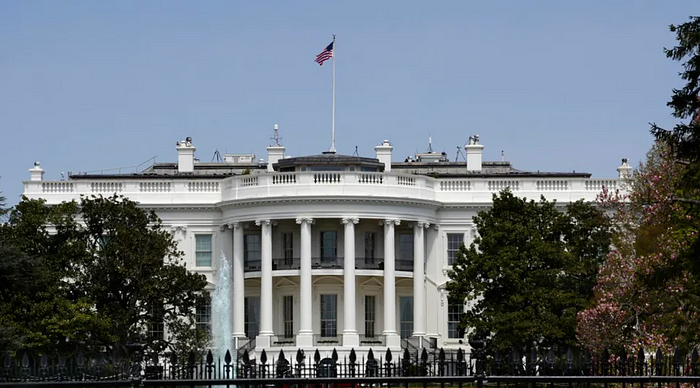The White House Has Made a Deal With Artificial Intelligence Trailblazers, But Not Everyone Is Happy

Key takeaways
- The White House has asked seven leading AI companies to voluntarily commit to developing AI safely
- The move comes as U.S. lawmakers consider how best to regulate AI
- The EU passed the Artificial Intelligence Act earlier this year
The U.S. lawmakers are moving as fast as they can to get AI regulated, but in the meantime, the Biden administration stepped in to bring Big Tech in line. Seven AI companies have agreed with the White House that they’ll develop AI safely, but some are skeptical about the prospect if it isn’t agreed in law. Here’s the lowdown.
AI has been crushing it in the stock market this year. Fancy joining the party? You can with Q.ai’s Emerging Tech Kit. This clever tool uses AI to sift through the week’s data, spot where the tech stocks and ETFs are heating up, and tweak the Kit’s holdings to help maximize your investment.
Download Q.ai today for access to AI-powered investment strategies.
What’s the White House agreement?
Leading AI companies, including OpenAI, Anthropic, Microsoft and Google, have voluntarily signed a commitment with the Biden administration to “help move toward safe, secure, and transparent development of AI technology”, according to the White House.
Some of the principles these Big Tech companies have agreed to include developing technical systems to detect AI-generated content, publicly reporting on AI model limitations and safety matters, and sharing information across the industry and with government agencies on managing AI risks.
The White House said before the agreement was made, the U.S. consulted with several international governments, including the U.K., France, India and Japan. However, critics of the announcement say the agreement does little to protect creatives and their content from being used to train AI models.
Is AI regulation on the way?
The White House agreement fills a gap as there’s no current legal framework for regulating AI’s development in the U.S. Several of these AI companies have already appeared in congressional hearings, where a bipartisan committee is determining how best to regulate the new technology before it’s too late.
U.S. lawmakers are now holding a series of closed-door meetings to get to grips with AI before they make any big decisions about regulation. The Federal Trade Commission (FTC) is in the early stages of investigating AI because it may not handle user data safely enough. Still, it’s a long way from reaching any conclusions.
It’s safe to say the U.S. is still some way behind the EU, which passed the Artificial Intelligence Act earlier this year.
The bottom line
Big Tech’s agreement with the White House is a nice gesture, but a voluntary agreement fails to have any teeth behind it. That’s exactly what’s needed to keep companies in line with developing AI safely — especially considering the failures of some of these companies in the past to look after user data properly.
AI has been Wall Street’s golden goose this year, with tech stock rallies juicing up the whole market. You can dip your toes into the turbulent market without the headache using Q.ai’s Emerging Tech Kit. It uses AI to cut through the weekly data, forecast the tech stocks and ETFs ready to break out and rejig the Kit’s holdings as the market swings.
Download Q.ai today for access to AI-powered investment strategies.
